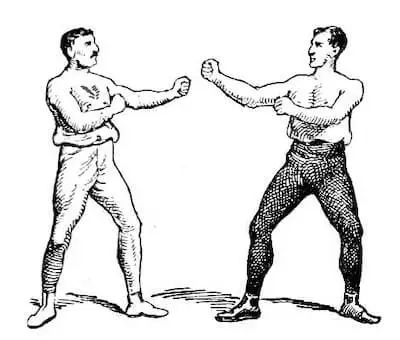Make or take up a challenge, or demonstrate one’s willingness to join an enterprise.
Throw your hat into the ring
What's the meaning of the phrase 'Throw your hat into the ring'?
What's the origin of the phrase 'Throw your hat into the ring'?
The ring in question here is a boxing ring. These, of course used to be circular spaces in a crowd of onlookers, rather than the square, roped ‘rings’ of contemporary pugilism. Any Jack the lad who fancied his chances in a bout would throw in his hat – presumably this was a more
reliable way of putting oneself forward than just shouting over the hubbub of the crowd.
The expression dates from at least the early 19th century. The earliest citation of it that I have found is from an 1805 issue of The Sporting Magazine, or as the publishers preferred to call it The Sporting Magazine or Monthly Calendar of the Transactions of the Turf, the Chace, and every other Diversion Interesting to the Man of Pleasure, Enterprise and Spirit:
Belcher appeared confident of success [in a boxing match], and threw his hat into the ring, as an act of defiance to his antagonist
That citation doesn’t specifically refer to a challenge. Another reference, from just a few years later, supplies that – The Mirror of Taste, published in Philadelphia in 1810:
A young fellow threw his hat into the ring and followed, when the lame umpire called out “a challenge,” and proceeded to equip the challenger for the game. … He then walked round the ring till a second hat was thrown in, and the umpire called out, “the challenge is answered.”
See also: throw in the towel.
Related phrases and meanings
Browse more Phrases
About the Author

Phrases & Meanings
A-Z
A B C D E F G H I J K L M N O P Q R S T UV W XYZ
Categories
American Animals Australian Bible Body Colour Conflict Death Devil Dogs Emotions Euphemism Family Fashion Food French Horses ‘Jack’ Luck Money Military Music Names Nature Nautical Numbers Politics Religion Shakespeare Stupidity Entertainment Weather Women Work
How did we do?
Have you spotted something that needs updated on this page? We review all feedback we receive to ensure that we provide the most accurate and up to date information on phrases.
